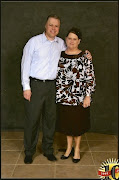4. Inappropriate comparisons divert me from what God wants me to do.
God has a plan for my life. I need to discover it and get on with what God wants to do in me!
5. Not all comparisons are bad.
While comparisons harm us in many ways, certainly some are helpful. Comparisons benefit us when we look up to others as good examples, models, or leaders. I had a great role model as a young person in the church—my pastor. I wanted to emulate him. I have found that if I only critique myself against myself, I can grow accustomed to serious—yet correctable—weaknesses. For example, several months ago another preacher’s message caused me to realize my sense of urgency had diminished. As a result, I intentionally worked on better preparation of my heart before preaching. Many great preachers teach and challenge me by the quality of their ministry. One difference between beneficial and inappropriate comparison, then, is my attitude toward the other person. Do I respect and admire him, or do I have a sense of competition and envy toward him?
6. To overcome irrational comparisons I must call them what they are.
a. Envy.
b. Self-Pity.
c. Selfish comparison with others always leads to sin. If I come up short, I fall to envy; if I come up tall, I sink into arrogance.
d. It is a disease of the spirit that will do great harm.
In Corinth, it tore the church apart.
When Cain compared himself to Abel, he came up short and wanted more and committed murder.
When Saul compared himself with David, he eventually became subject to evil spirits and tried to murder David.
When Satan compared himself with God, he didn’t measure up, wanted to be exalted, and turned into the personification of evil and the bane of humanity.
To realize this will give us new perspective. Instead of feeling God is letting us down, we will see that we are letting God down.
7. I must find new ways to compare myself with others.
Sin finds a way to mutate and in its new form goes unrecognized for a time “What a wretched man I am! Who will rescue me from this body of death? Thanks be to God—through Jesus Christ our Lord!”
Conviction-based ministry
Like lust, wrongful comparisons are a spiritual battle that through Christ I must guard against and defeat—one day at a time. Consider a Christ-centered view of ministry based on ten convictions:
1. God is the one who assigns my task (1 Cor. 3:5).
2. God determines the scope of my ministry (2 Cor. 10:13–16).
3. God gives me the gifts he wants me to have (1 Cor. 12:4–11).
4. God is the one who makes me fruitful (1 Cor. 3:6).
5. God opens and closes doors (Col. 4:3).
6. God is the one who lifts people up (Ps. 75:6–7).
7. God bestows positions of high visibility even to the lowliest of people. When God gives great authority to someone, it does not necessarily mean that he approves more of that person or that they are more spiritual or holy than I am (Dan. 4:17).
8. By the grace of God we have our own ministries (1 Cor. 3:10).
9. No ministry deserves more credit than another (1 Cor. 3:7).
10. What matters to God is our faithfulness (Matt. 25:14–30).
These beliefs can enable me to persevere with contentment in the places God has commissioned me to be.
After a meal of fish on the shore of the Sea of Galilee, when the resurrected Jesus had finished reinstating Peter, he concluded with the simple words “Follow me!” True to form, Peter immediately blundered. He turned to the disciple whom Jesus loved and could not resist comparison.
“Lord, what about him?” Peter asked.
“Don’t worry about him; you do what I said.”
This is roughly how Jesus responded to Peter: “If I want him to remain alive until I return,” he said, “What is that to you? You must follow me”.
In other words, what the Lord does with someone else is none of my business. My concern must be with the command of my Lord to me. I cannot allow comparisons with others to distract me from the one thing that truly matters: following Jesus.




